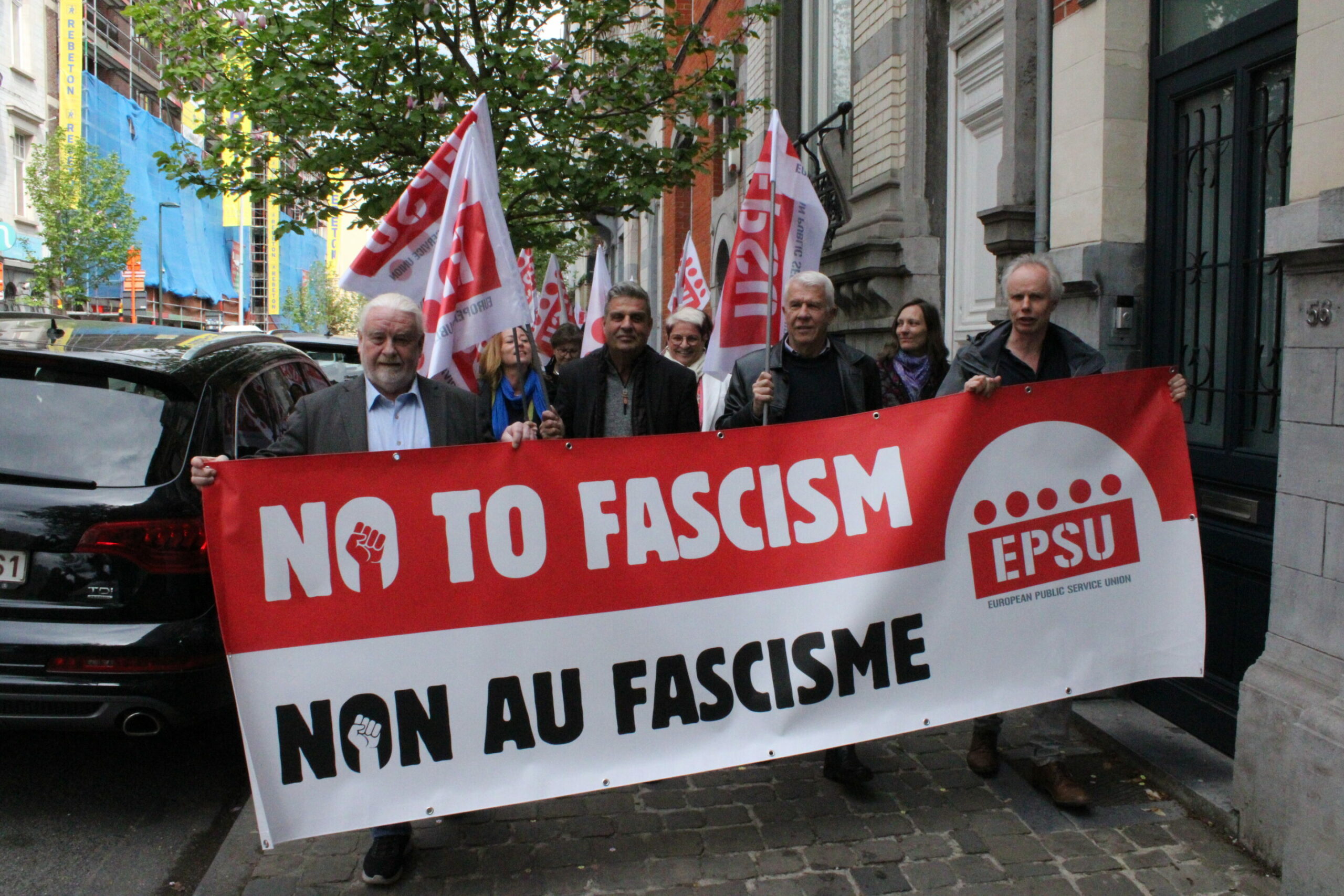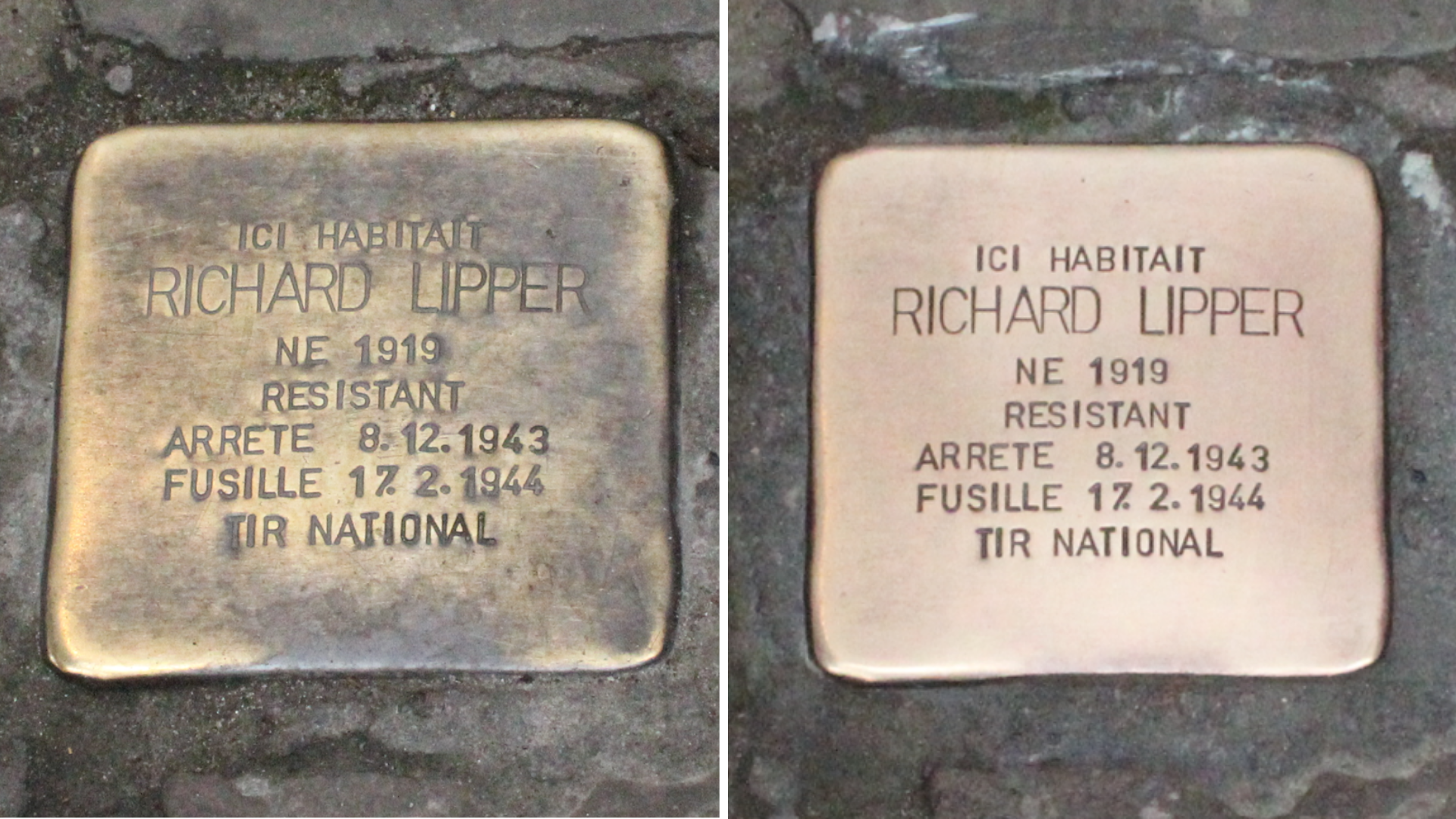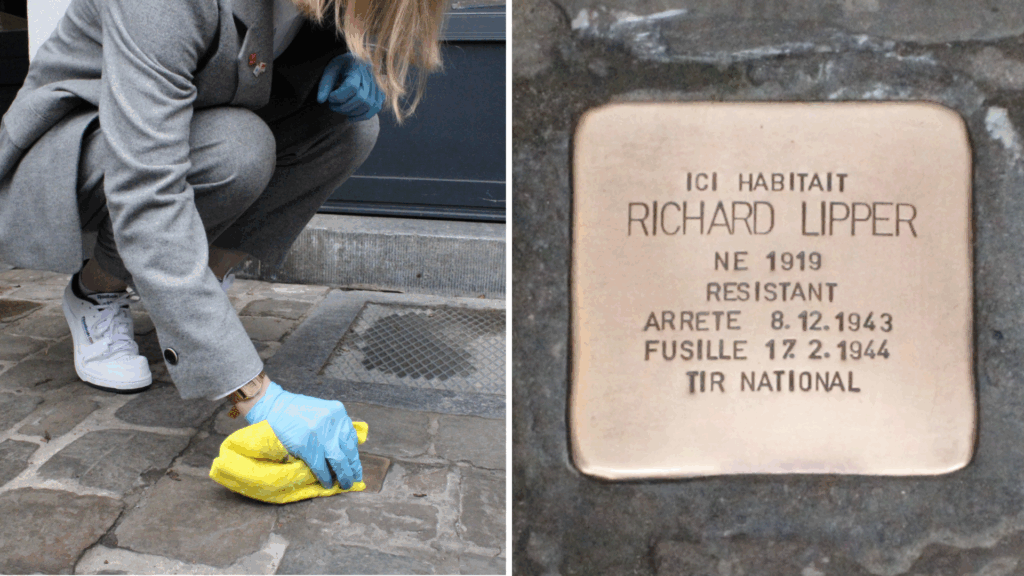A European trade union has marked Liberation Day on 8 May by cleaning Brussels' 'stolpersteine' (also known as 'stumbling stones' in English), the brass plates that commemorate victims of the Holocaust.
On 15 April after its Executive Committee meeting, the European Public Service Union (EPSU) staged an anti-fascist march and a ceremony at the 'stolpersteine' of Richard Lipper on Rue Washington, Ixelles.
The action was in anticipation of Liberation Day on 8 May, the date that marks Europe's defeat of fascism in 1945.
A crowd of trade unionists marched down the street with a 'No to fascism' banner before listening to speeches made by delegates from Germany, Italy, the Netherlands, France and Spain.

Credit: The Brussels Times
"We are here to honour the past and to fight for the values that we share as public service trade unionists," said EPSU President Françoise Geng. "Today, as trade unionists, we remember that resistance is not just history – it's a responsibility. Our message is simple: no to fascism, not then, not now."
"The warning signs of fascism are always the same – fear, blame, and the erosion of rights," said EPSU Secretary General Jan Willem Goudriaan. "Public service workers know what's at stake when democracy is under threat. We have all the inspiration we need to combat fascism in our history. We'll not merely remember it, but also keep their fight alive against all kind of far-right threats."
'Brush the history'
Next came a ceremony to "brush the history": the cleaning of the 'stolpersteine', or 'stumbling blocks', the brass plates that line the streets in memory of victims of the Holocaust, executed members of the resistance and others who suffered at the hands of the Nazi regime.
The EPSU chose the stolperstein placed at the last known address of Richard Lipper, at Rue Washington 63. Lipper was an Uccle native and ULB university student born in 1919 and killed for his active involvement in the resistance during the Second World War.
Lipper published clandestine newspapers, attempted to help a British individual escape Nazi forces and rose through the ranks of the General Sabotage Group of Belgium, or 'Groupe G', a resistance group founded by ULB students. He was arrested by the Gestapo (Nazi secret police) and imprisoned in 1943. He was executed by a firing squad in 1944 at the age of 24.

Credit: The Brussels Times
The youngest EPSU Committee member Lea Herzig was chosen to clean Lipper's plaque. As a young person, she acts as a "link between the past and the present", she told The Brussels Times.
Surrounded by her colleagues, Herzig scrubbed the stolperstein, a symbolic gesture to acknowledge the importance of remembering the victims of the Holocaust, when over six million Jews were killed by the Nazi regime.
Herzig is a German national and feels particularly strongly about avoiding the mistakes of the past.
"The stumbling stones are a very important way to show everyone, every day in the streets, that people lived in the houses where we live today, and were killed by fascism," she said. "They are a sign that something like this should never happen again."
'A human being who sacrificed everything they have'
EPSU Communication Officer Can Kaya is fascinated by the history of stolpersteine. He previously lived in Berlin and has continued a personal tradition of cleaning the stumbling blocks and reading about the the victims they commemorate. He has visited almost 100 of the 500 stolpersteine in the Belgian capital.
He recalls the story of Youra Livchitz, Robert Maistriau and Jean Franklemon, three members of the Belgian resistance who managed to intercept a train travelling from a transit camp in Mechelen to Auschwitz concentration camp and free hundreds of people in April 1943.
Maistriau and Franklemon were imprisoned several months later and liberated after the fall of the Nazi regime. Livchitz, a Jewish doctor, was imprisoned and shot by a firing squad in 1944. His solperstein is in Uccle.
"Behind every brass plate, there is a human being who sacrificed everything they have," Kaya told The Brussels Times. "It is not just about the history, it is not just about brushing the stone. It is also about remembering their stories and getting inspired [...] That is definitely what we need. Rather than just remembering our history, we need to keep the fight alive."

